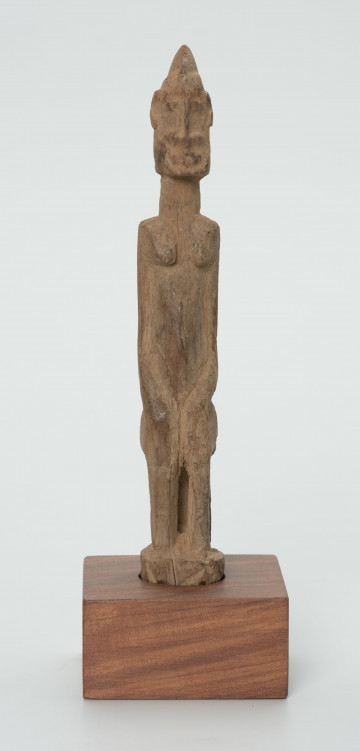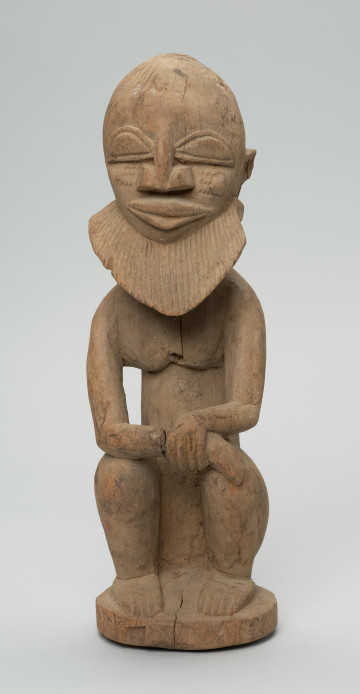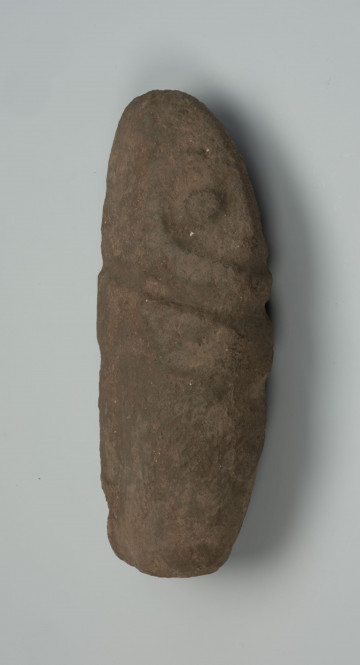
Figurine - ancestor
między 1901 — 1950
National Museum in Szczecin
Part of the collection: Collection of Dogonian art
The Dogon are people living in the south-central part of the Republic of Mali. Its number is estimated at 500-600 thousand. The largest concentration of their villages is located on a 150 km stretch along the Bandiagara Escarpment. The villages are located on the massif, on the plain spreading around it and on the so-called debris, i.e. stony slopes and ravines located at its foot. The Dogon are a patriarchal society in which men play a dominant and responsible role. Their tasks include managing the people, directing religion and the economy and politics. The men's world is divided into four hierarchical, hermetic groups, further divided internally into several sub-groups. The least privileged group includes young, circumcised men, not yet experienced (commonly known as disciples). Their task is mainly to carry out the instructions of older men. The second category consists of adult Dogon men full of vitality and burdened with responsibility for their families, commonly called teachers. They concentrate economic power in their hands. The next group is formed by the elder leaders of the families, on whose shoulders rests the duty of passing on traditions. They hold political and religious power in their hands. The fourth and final category are the oldest men, who are already counted among the ancestors. They play the role of observers and peacemakers. According to other Dogon, in addition to knowledge, they have a secret power that enables them to live to a ripe old age. For the good of the whole society, it is important for all groups of men to work together and to respect the hierarchy, namely the younger ones must always be controlled by the older ones.
Ewa Prądzyńska
Author / creator
Dimensions
cały obiekt: height: 25 cm, width: 6 cm
Object type
figure
Creation time / dating
Creation / finding place
Identification number
Location / status

między 1901 — 1950
National Museum in Szczecin

między 1951 — 2000
National Museum in Szczecin

między 1951 — 2000
National Museum in Szczecin
DISCOVER this TOPIC
National Museum in Lublin
DISCOVER this PATH
Educational path